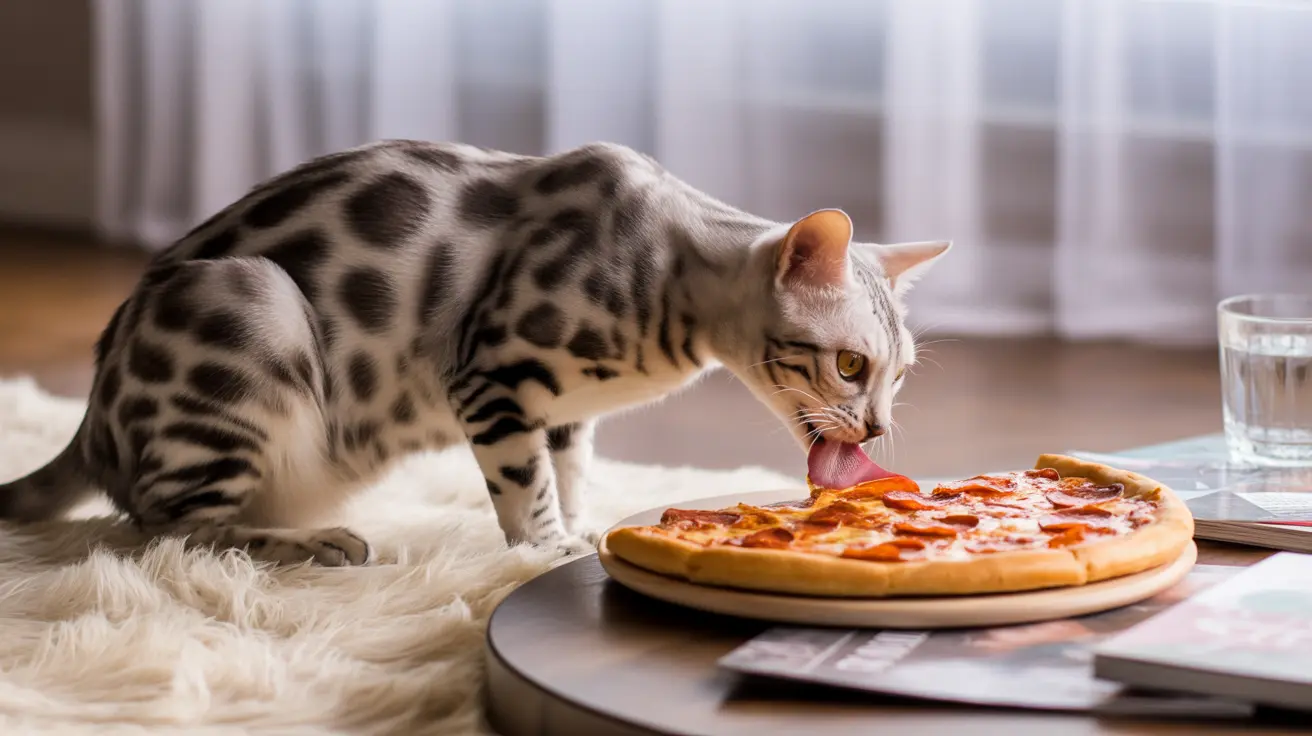Why Pizza is Unsafe for Cats
Cats are obligate carnivores, meaning they require a diet primarily consisting of meat. Their digestive systems aren't designed to process many of the ingredients commonly found in pizza. Even a seemingly simple slice can contain multiple components that could harm your cat's health.
The Dangerous Components of Pizza
Most pizzas contain several ingredients that are toxic or harmful to cats:
- Garlic and onions (common in sauce and toppings)
- High sodium content
- Dairy products (cheese)
- Processed meats
- Herbs and seasonings
- Yeast dough (if uncooked)
Health Risks of Feeding Pizza to Cats
Immediate Health Concerns
When cats consume pizza, they may experience several immediate adverse reactions:
- Digestive upset and vomiting
- Diarrhea
- Lethargy
- Excessive thirst
- Stomach pain and discomfort
Long-term Health Implications
Regular consumption of pizza or pizza ingredients can lead to serious health issues:
- Obesity from excess calories
- Diabetes
- Pancreatitis
- Kidney problems from high sodium
- Anemia from garlic/onion toxicity
What to Do If Your Cat Eats Pizza
If your cat manages to sneak a bite of pizza, don't panic. Monitor them closely for any concerning symptoms. Contact your veterinarian immediately if you notice:
- Persistent vomiting or diarrhea
- Signs of lethargy or weakness
- Unusual thirst or urination
- Loss of appetite
- Pale gums
- Unusual behavior
Safe Alternatives to Pizza for Cats
Instead of sharing pizza with your cat, consider these safer alternatives:
- Commercial cat treats designed for felines
- Small pieces of plain, cooked chicken or turkey
- Specialized cat-safe training treats
- Commercial cat food formulated for their specific nutritional needs
Frequently Asked Questions
Can cats safely eat plain pizza crust without toppings?
While plain pizza crust isn't toxic, it's not recommended for cats. It provides no nutritional value and contains unnecessary carbohydrates that can contribute to obesity. Additionally, most pizza crusts contain salt and other seasonings that aren't good for cats.
Why is pizza cheese harmful to most cats?
Most adult cats are lactose intolerant, making pizza cheese difficult for them to digest. Additionally, pizza cheese is typically high in fat and sodium, which can lead to digestive issues, obesity, and other health problems.
What toxic ingredients in pizza should cat owners avoid?
The most dangerous pizza ingredients for cats include garlic, onions (both fresh and powdered), high-sodium processed meats, and certain herbs and spices. These ingredients can cause serious health issues, including potentially fatal anemia.
What symptoms should I watch for if my cat eats pizza accidentally?
Monitor your cat for vomiting, diarrhea, lethargy, excessive thirst, pale gums, and unusual behavior. If you notice any of these symptoms, contact your veterinarian immediately.
Are there any safe homemade pizza alternatives suitable for cats?
Rather than attempting to create pizza-like alternatives, stick to cat-appropriate treats and foods. If you want to give your cat a special treat, offer small pieces of plain, cooked meat without any seasonings or additives.
Conclusion
While sharing food with our pets can be tempting, pizza should never be on the menu for cats. The risks far outweigh any momentary pleasure your cat might get from this human food. Instead, show your love by providing appropriate cat-specific treats and maintaining a healthy, balanced diet designed for felines.






